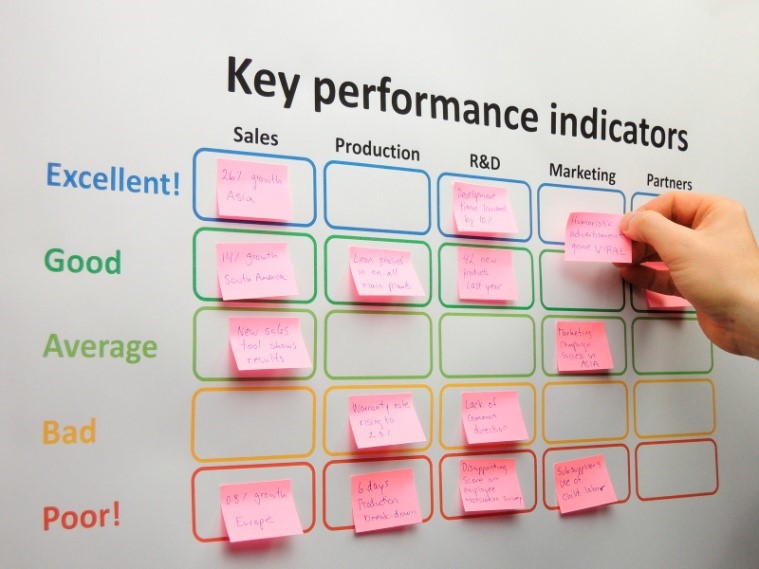Life isn’t black and white, and neither is workplace success.
Too often, employees think that performance measurements are at either ends of the spectrum—they’re good or they’re bad. Employees may avoid even discussing the topic out of fear of getting in trouble or getting someone else in trouble. However, the goal of measurements is to examine your company’s objectives and understand whether performance and results are reaching the desired outcomes. And if not, what needs to be done to change that. It’s not about blame. It’s about solutions.
What is performance measurement?
Performance measurement is an ongoing collection of data by individual employees within a company that is aggregated and analyzed to determine whether or not the proper process are in motion to achieve desired results.
This is not to say that once the results are reached, that they are complete. Companies think when they hit a target they’re done, they’re “there.” But performance improvement is never done. When you reach a goal, you celebrate and set a higher one. That’s how companies stay competitive.
Performance measurement is a tool, but it’s not a club
Performance measurement gives you hard data that allows you to stratify and prioritize organizational issues that show up. There is no good or bad. It’s not a club to beat people with when results don’t measure up. It simply gives you a baseline of your current performance, helps you identify and prioritize problem areas, and allows you to determine if the solutions you’re implementing are moving the needle on performance. The data is strictly meant to foster open, aligned communication throughout your organization and set clear expectations around organizational goals, which are necessary in any world-class organization.
Speak up when you’re stuck
Performance atrophies when employees sweep issues under the rug. Instead of explaining which issues are preventing them from doing their jobs (and therefore hindering performance), workers will often say nothing happened. If people are able to speak up and address what’s holding them back, companies will be able to implement solutions that support their workers and organizational progress.
Stay organized; stay positive
Employees have a responsibility to speak up when something isn’t working. Leaders have a responsibility to establish a culture where employees feel comfortable speaking up and keep the conversations focused on solutions instead of blame.
There is no finish line in continuous performance improvement, only progress. And if you’re not continuously improving in today’s competitive business environment, you’re actually moving backward.
The Dorsey Group can help unleash your team’s potential and power peak performance. For more information, contact us at www.TheDorseyGroup.org or (954) 629-5774.

